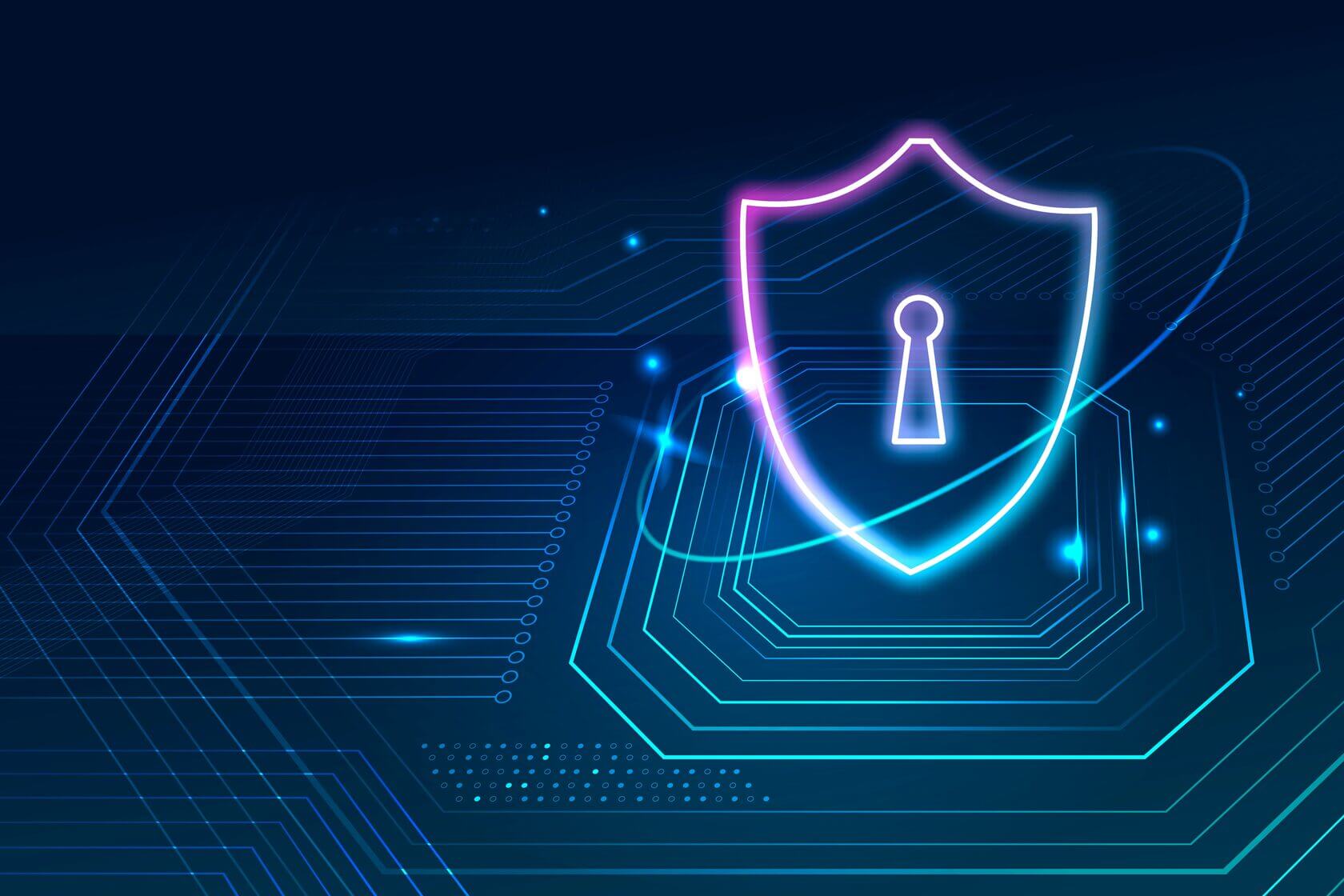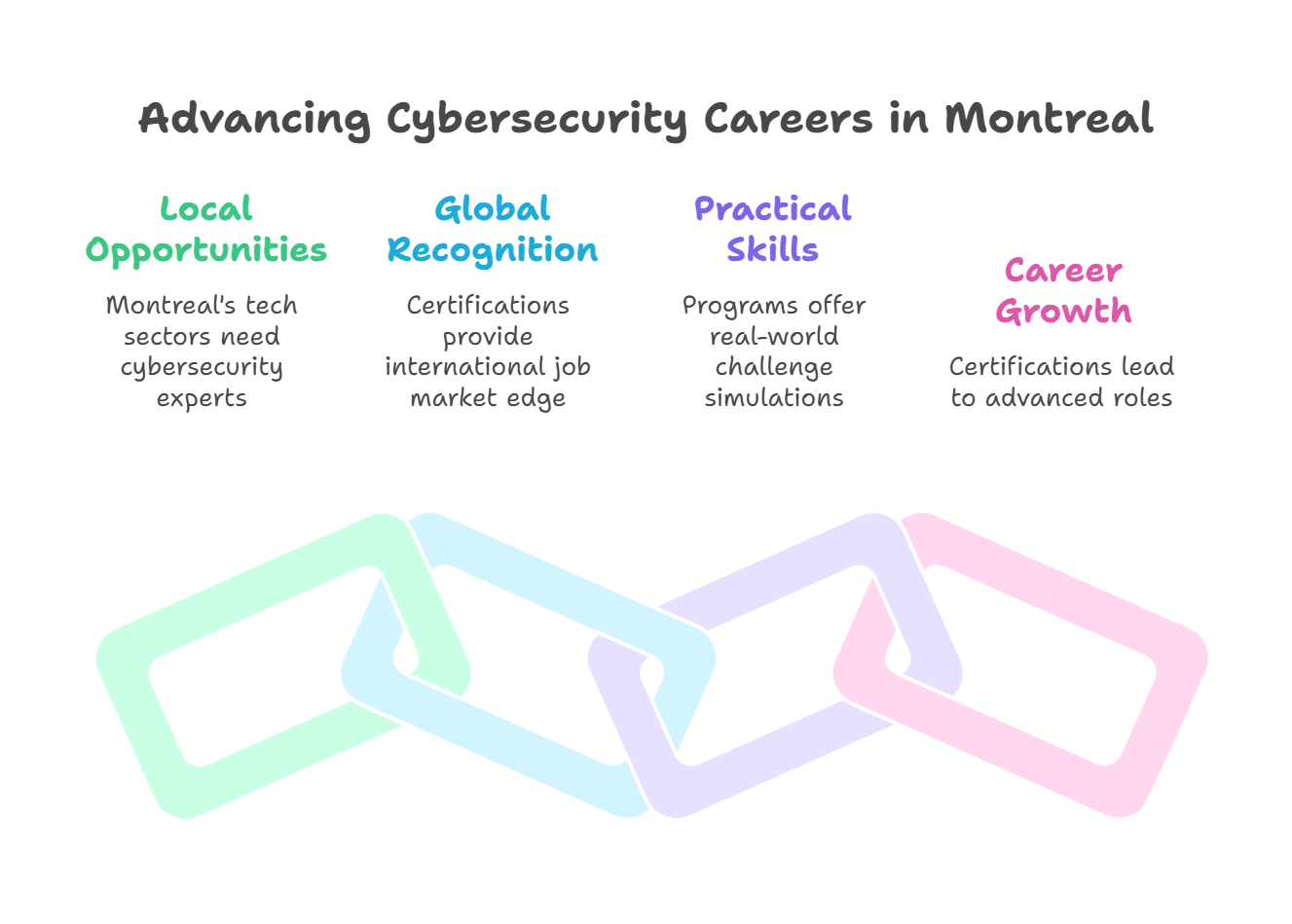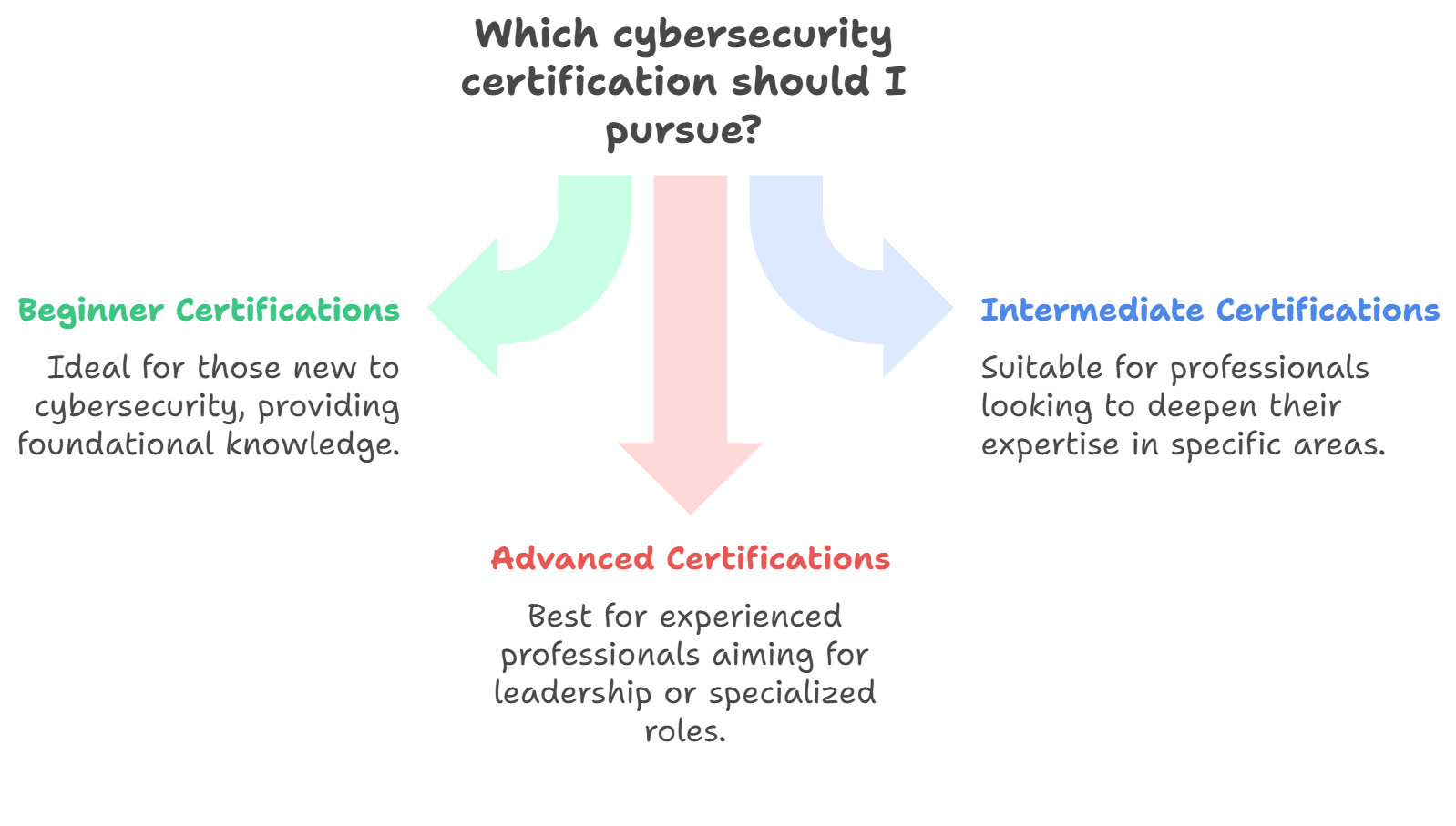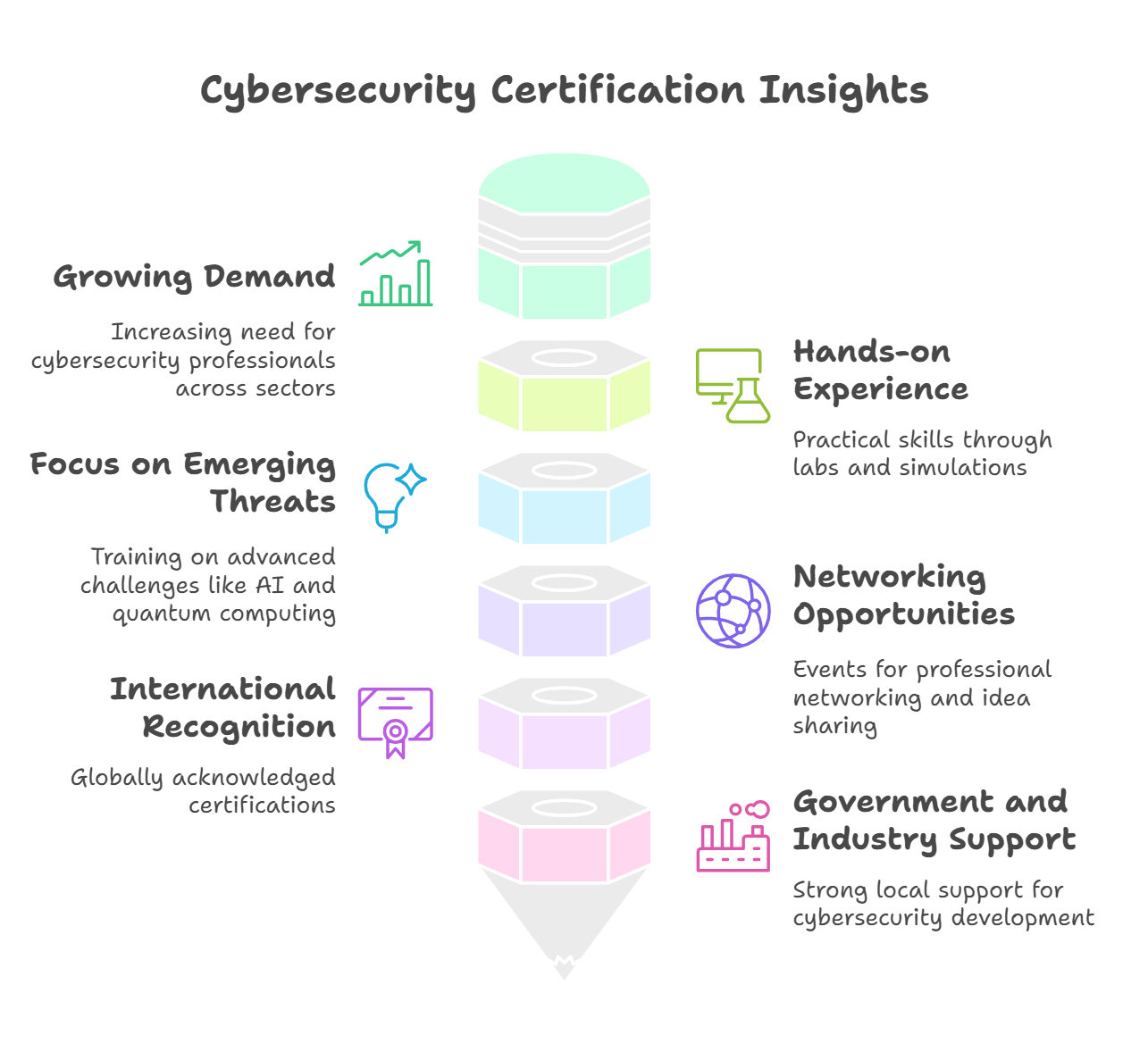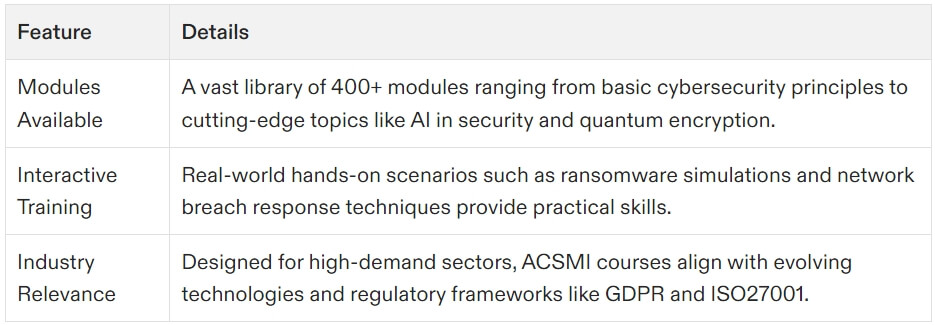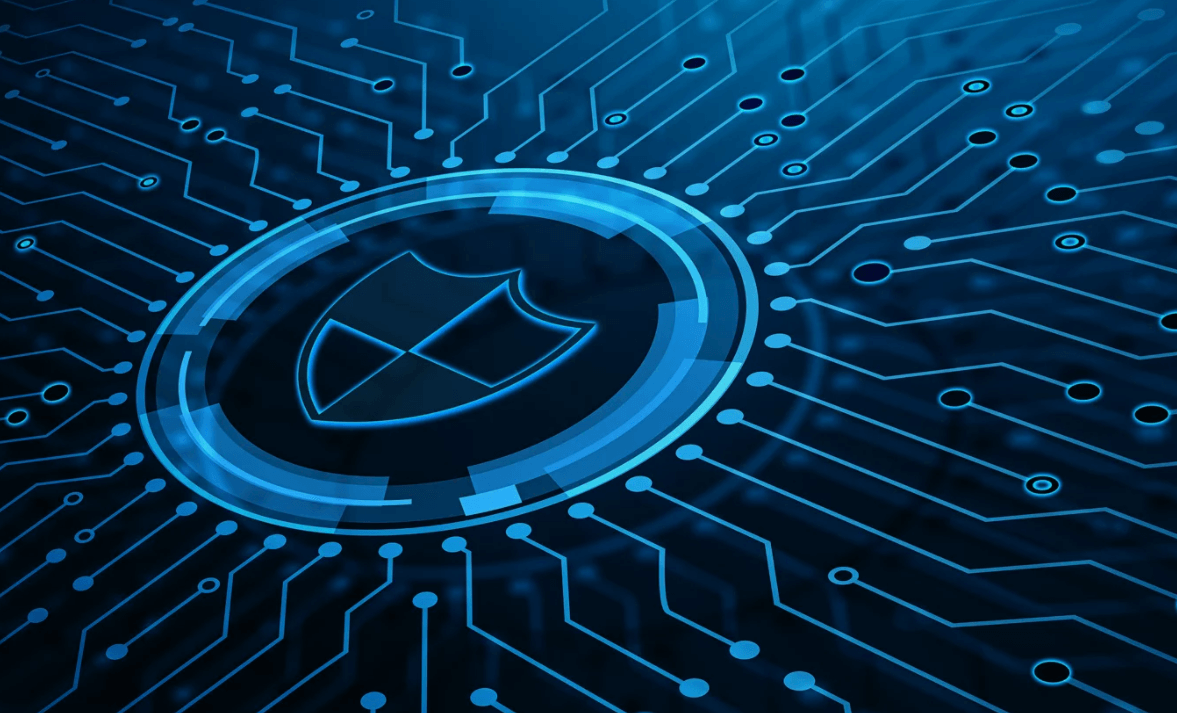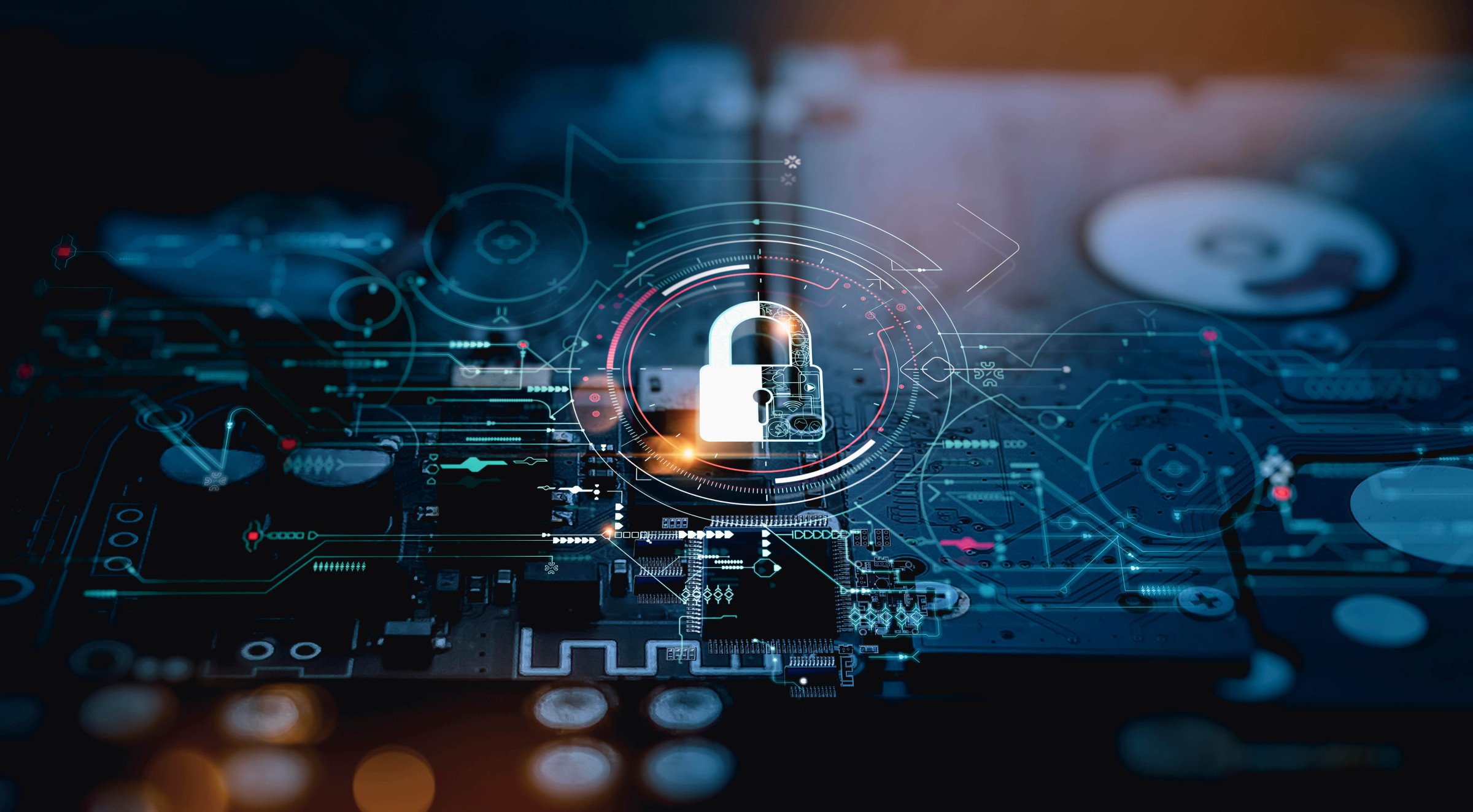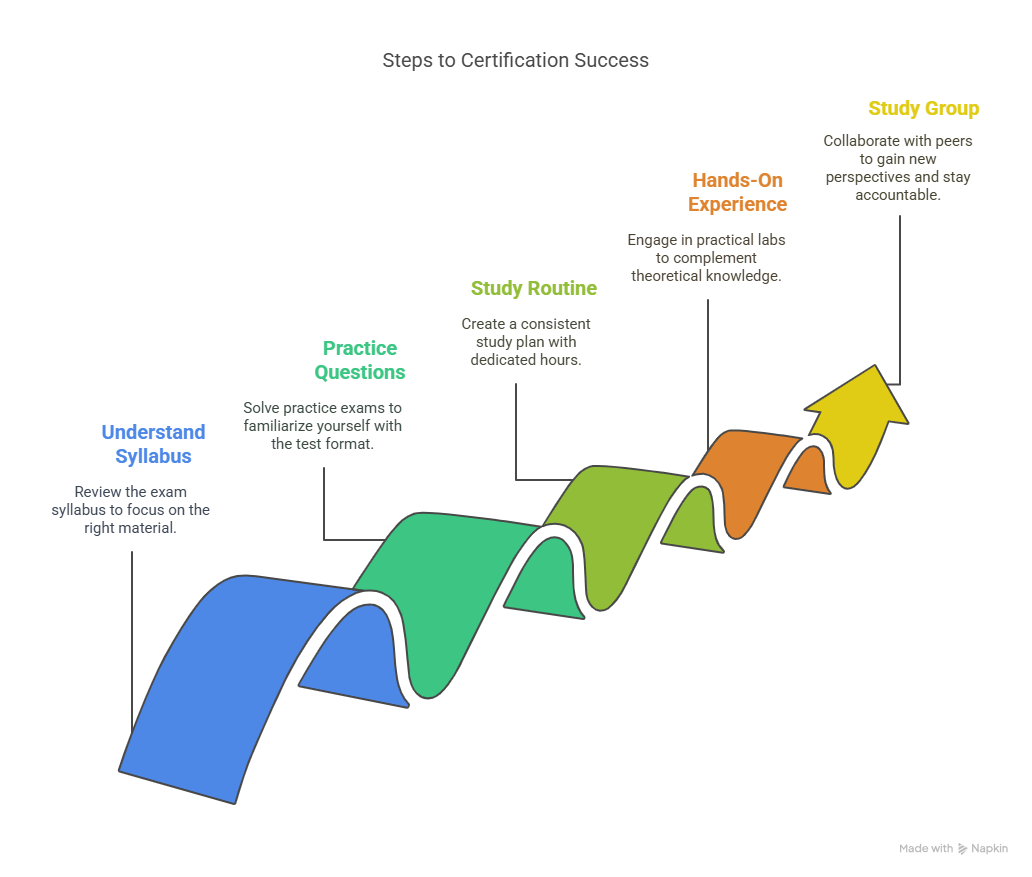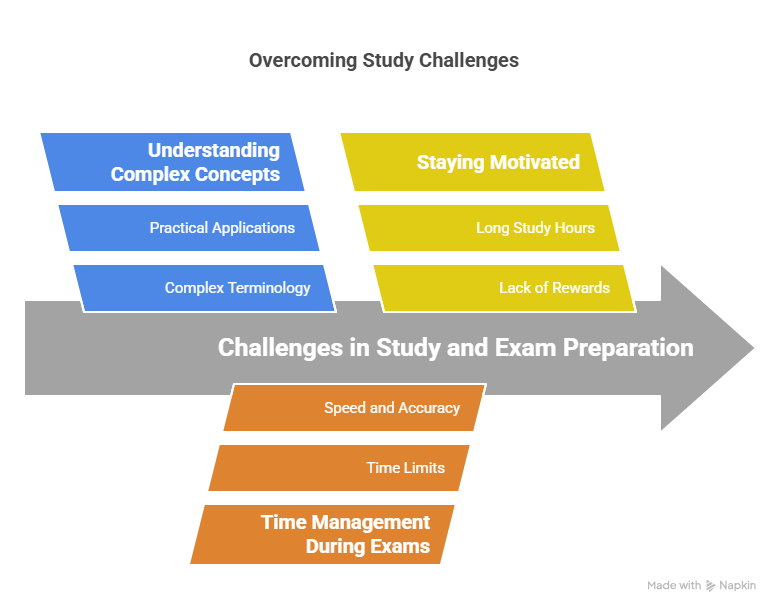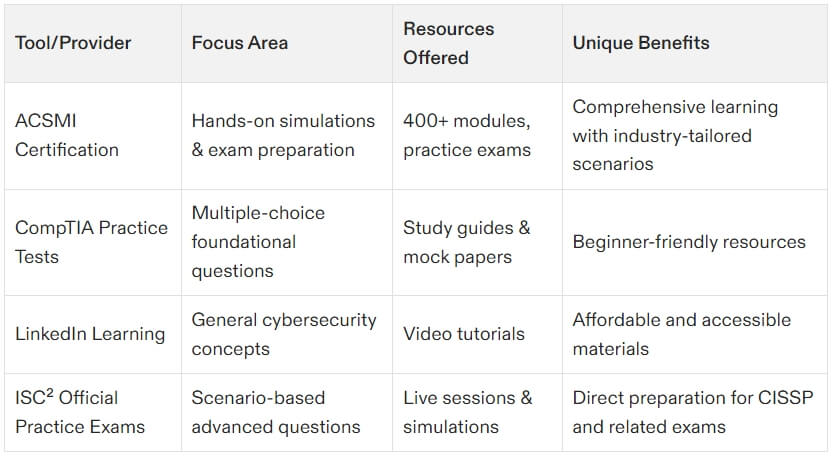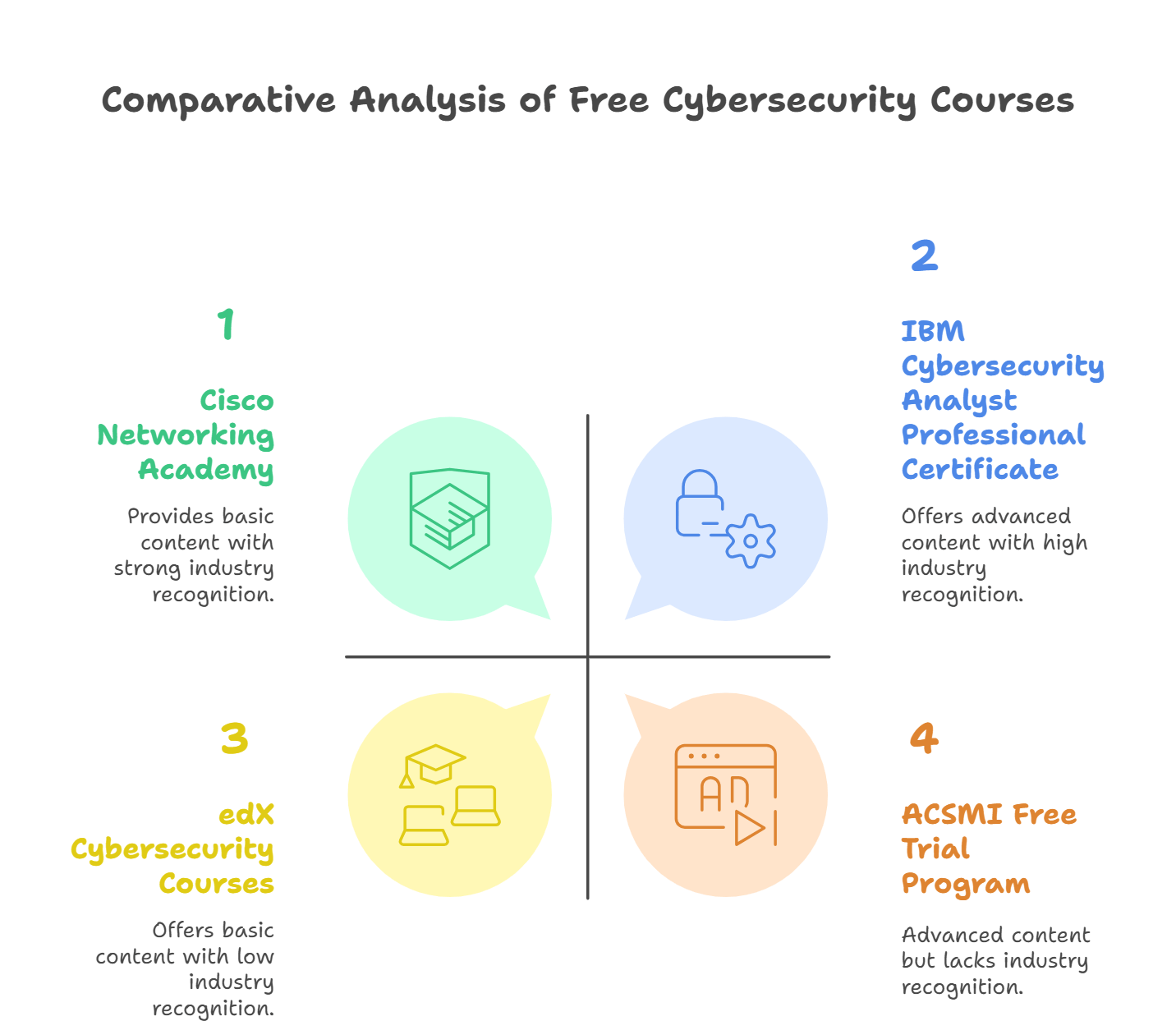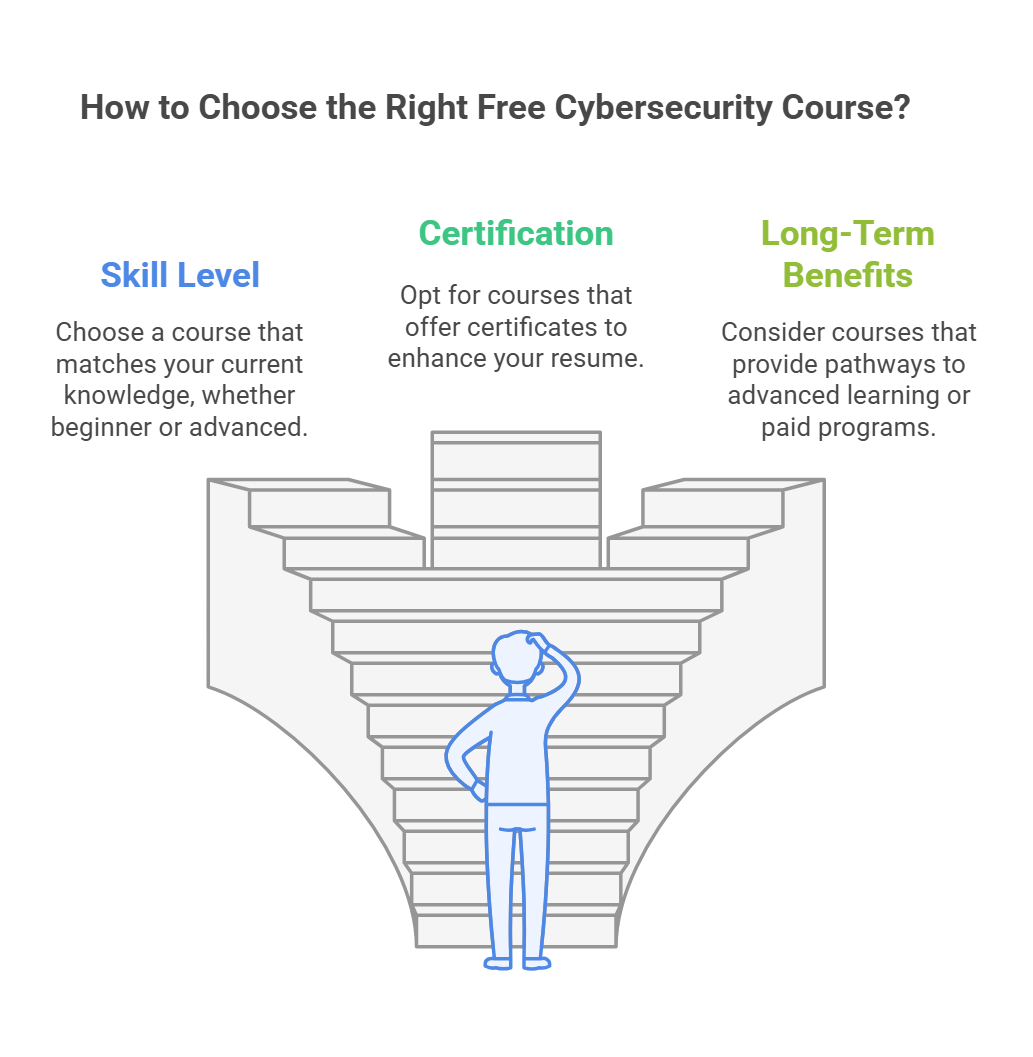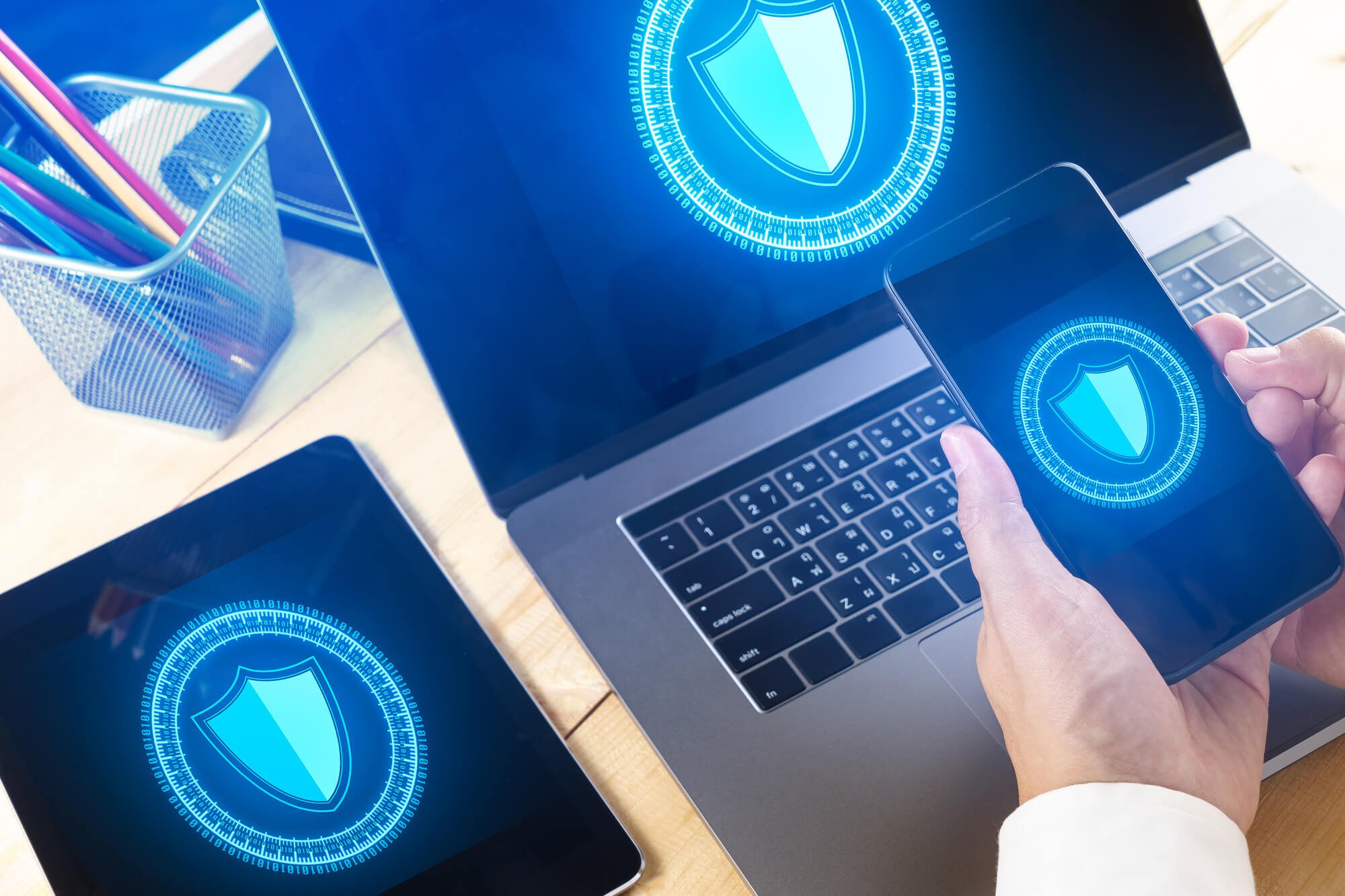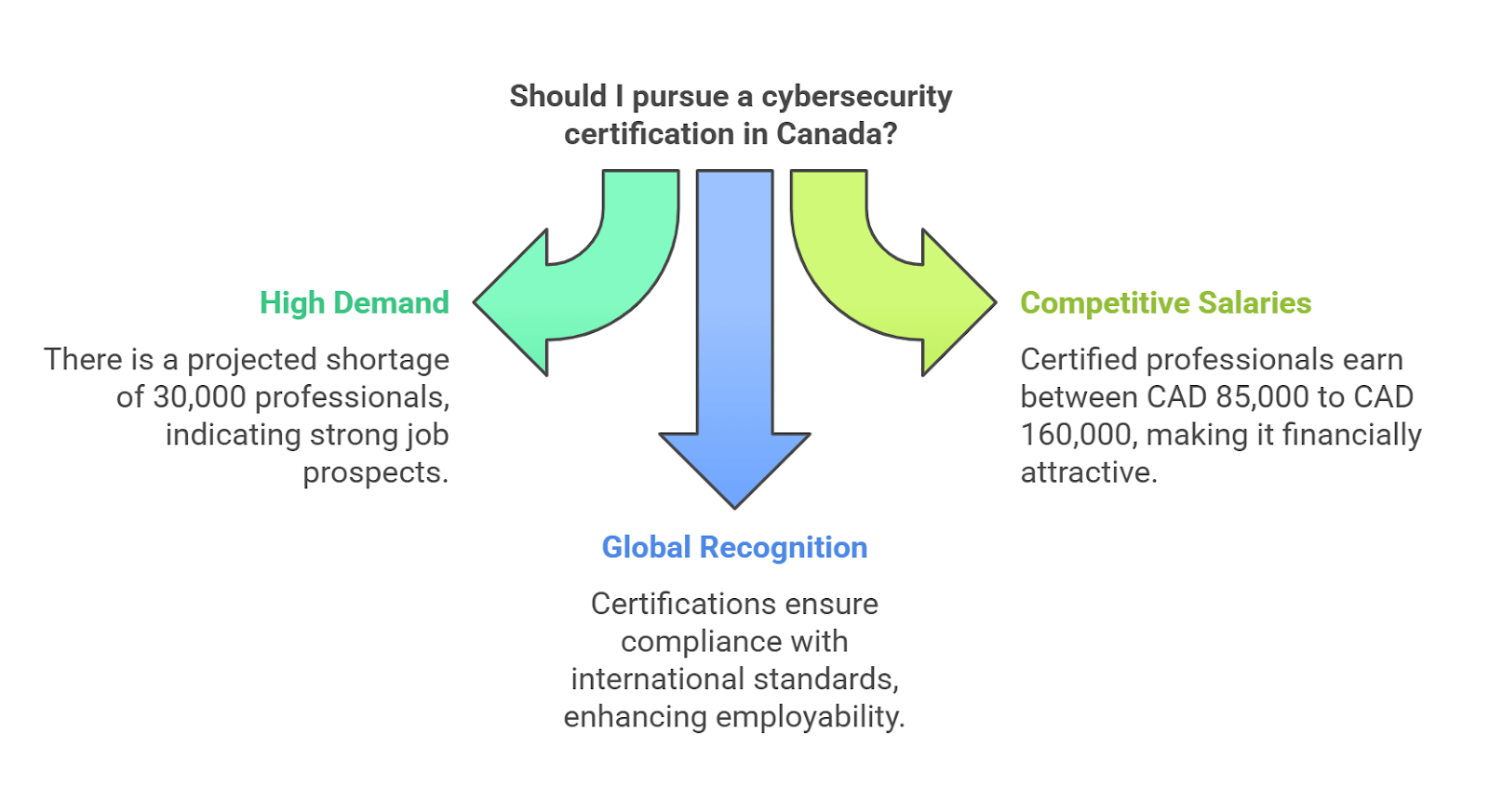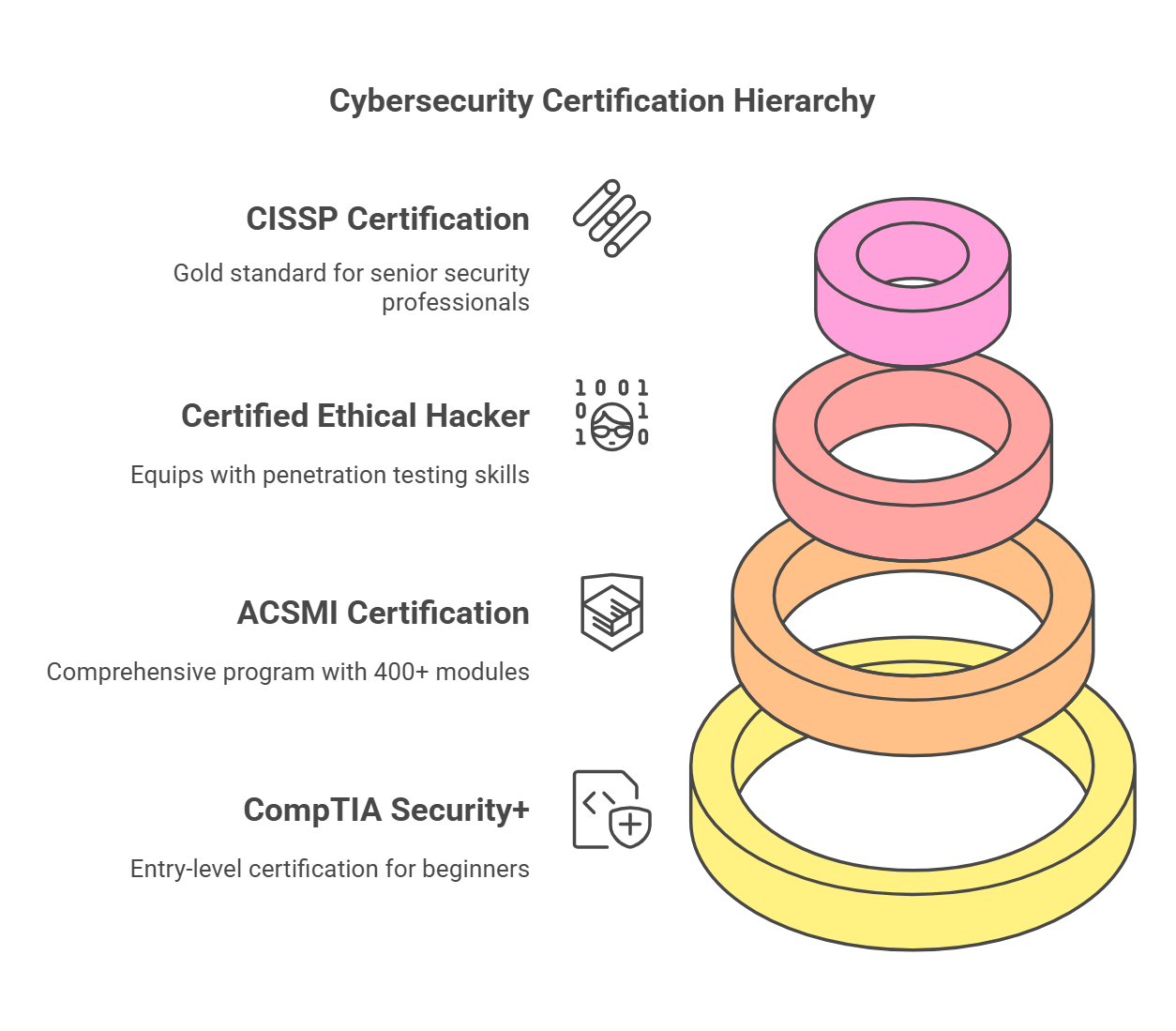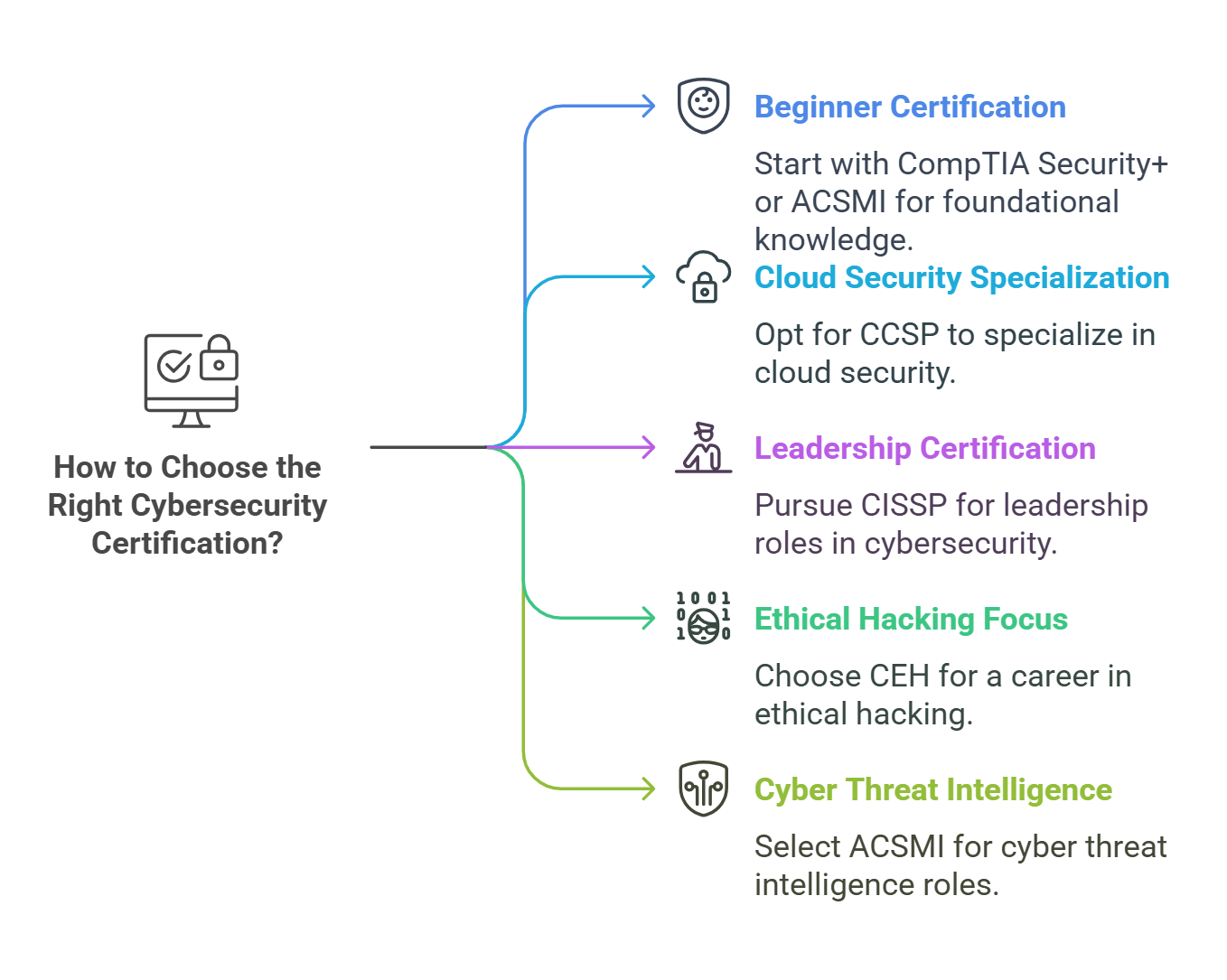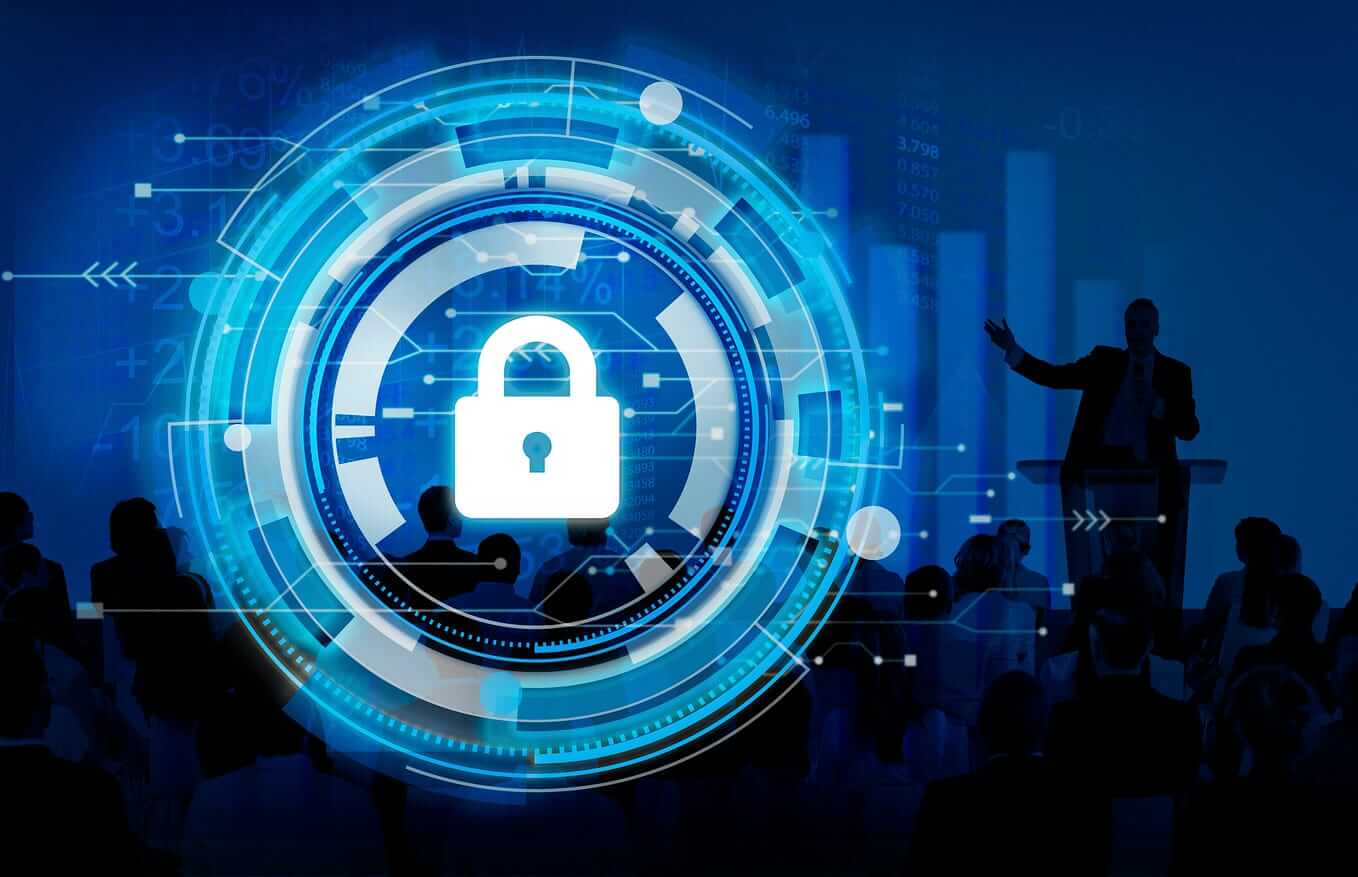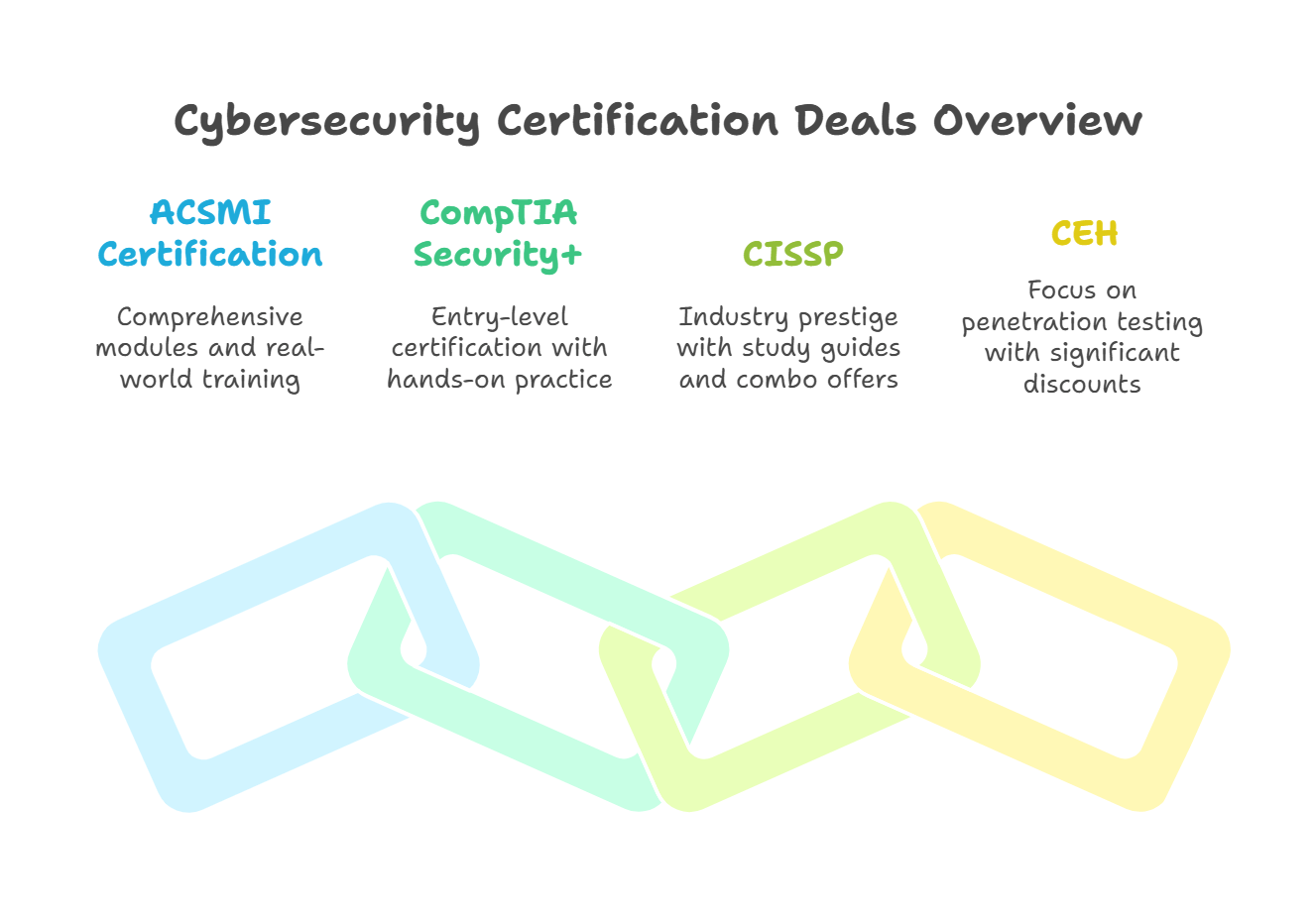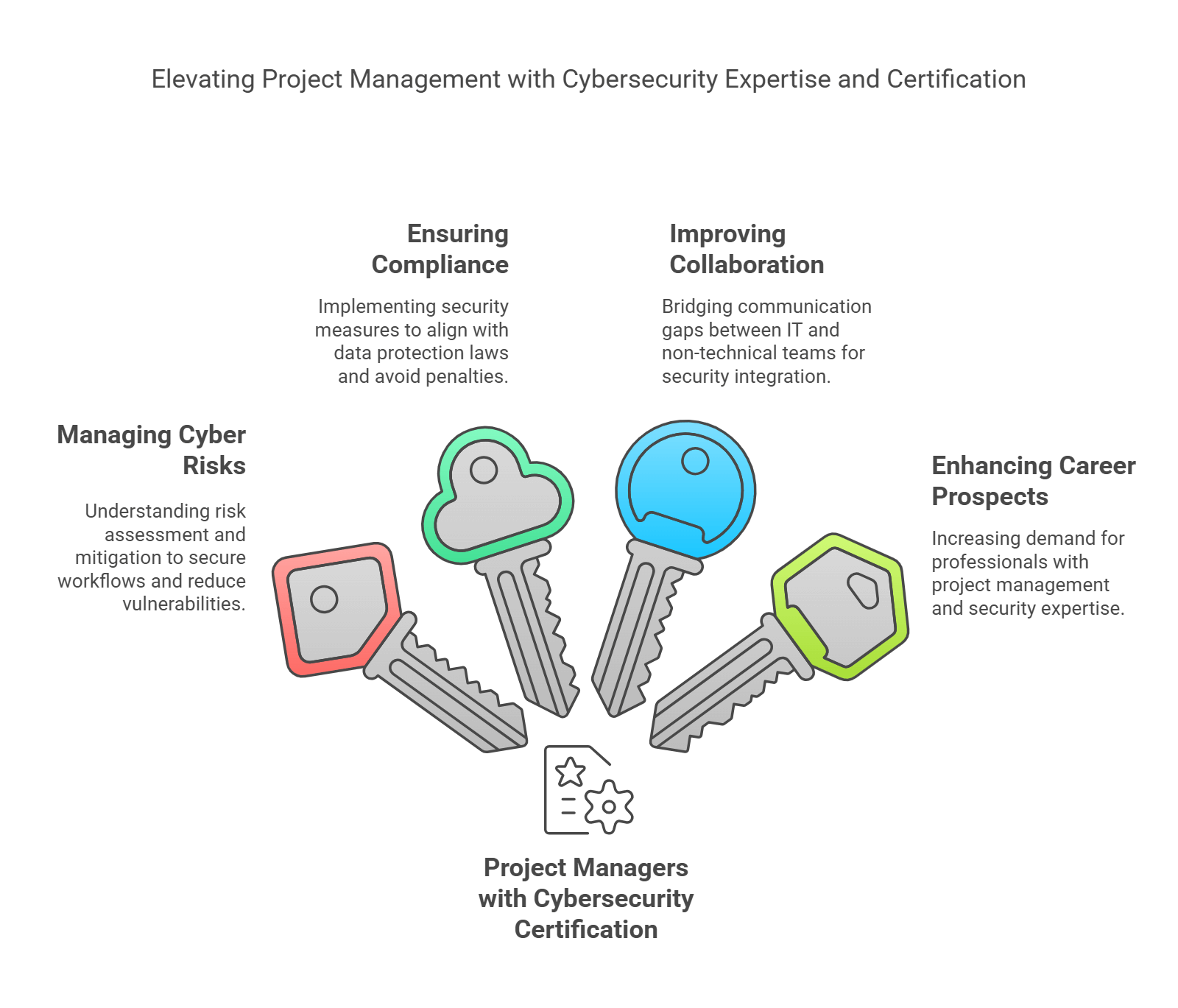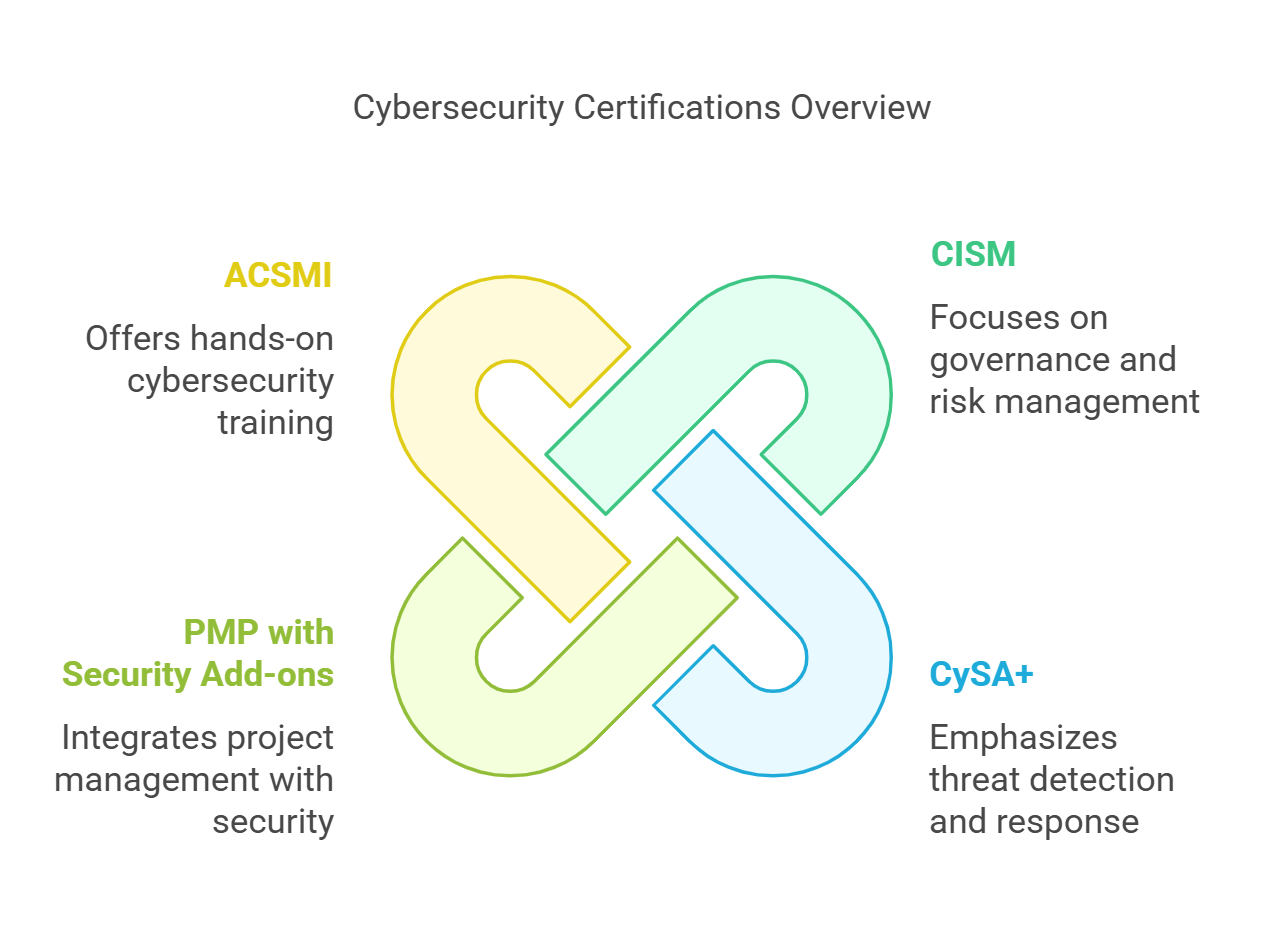Table of Contents
- Why Pursue Cybersecurity Certification in Malaysia?
- Cybersecurity Certification Programs in Malaysia
- The Role of Training Centers in Malaysia
- How ACSMI Fits into Cybersecurity Certification Malaysia
- Career Paths After Cybersecurity Certification
- FAQs About Cybersecurity Certification Malaysia
- ACSMI Certification Features
- Final Thoughts
In today’s digital age, cybersecurity is no longer just a matter of convenience; it’s a necessity. As cyber threats continue to escalate globally, businesses, governments, and individuals are increasingly concerned about the safety of their data. With billions of dollars at stake and critical infrastructure under threat, cybersecurity has become one of the most essential fields in the tech industry. Security Technology Key Trends play a vital role in shaping how organizations respond to these challenges and adapt their defenses accordingly.
Malaysia, a rapidly growing technology hub in Southeast Asia, is at the forefront of this digital transformation. With a growing demand for skilled cybersecurity professionals, obtaining a cybersecurity certification in Malaysia offers individuals the knowledge and credibility they need to succeed in this high-demand industry. Whether you’re aiming to enhance your existing skill set or pivot into a cybersecurity career, a certification can provide you with the right tools to advance.
Why Pursue Cybersecurity Certification in Malaysia?
As Malaysia continues its digital expansion, the demand for skilled cybersecurity professionals grows exponentially. The rapid adoption of technology across industries such as finance, healthcare, manufacturing, and government has brought with it a surge in cyber threats. Malaysia’s cybersecurity workforce needs to grow alongside this digital transformation to safeguard the country’s digital assets.
Pursuing a cybersecurity certification in Malaysia not only allows you to gain essential technical knowledge but also demonstrates to potential employers that you are dedicated to staying at the forefront of this rapidly evolving industry. Here are some reasons why earning a certification is essential for professionals in Malaysia:

1. Addressing Malaysia’s Cybersecurity Demand
As Malaysia embraces a digital-first economy, the demand for skilled cybersecurity professionals continues to rise. With data breaches and cyberattacks becoming more frequent, organizations are looking for qualified experts to protect their digital infrastructure. A cybersecurity certification in Malaysia helps you gain the expertise needed to meet this demand, making you a valuable asset to any organization.
2. Preparing for Digital Transformation
Malaysia’s transition into a digital economy is supported by initiatives like MyDigital, the country’s national strategy to become a leading digital economy by 2030. With increased digitalization, cybersecurity professionals will play a critical role in securing everything from sensitive financial data to healthcare records. Earning a certification provides you with the knowledge to tackle emerging threats as Malaysia continues to advance technologically.
Benefits of Cybersecurity Certification in Malaysia
Cybersecurity certification in Malaysia offers a wide array of benefits for professionals seeking to establish themselves in the field or advance their existing careers. With increasing concerns over Cyber Threats, obtaining certification becomes even more crucial. Below are some of the key advantages of pursuing a cybersecurity certification:

1. High Employability
Malaysia’s tech job market is ripe with opportunities for certified professionals. The demand for cybersecurity specialists in Malaysia spans various sectors, including banking, e-commerce, telecommunications, and government services. Having a recognized cybersecurity certification boosts your chances of landing a role in these industries, where you’ll be responsible for securing critical systems and data.
Certification not only demonstrates your expertise but also gives you a competitive edge over non-certified candidates, making it easier to land jobs in cybersecurity-related fields.
2. Global Recognition
A cybersecurity certification in Malaysia that is accredited by global organizations such as CompTIA, Cisco, or (ISC)² will open doors to job opportunities both within Malaysia and internationally. Certifications with global recognition increase your competitiveness in the global job market, making it easier to apply for jobs abroad and collaborate on international cybersecurity projects.
The recognition these certifications carry can help professionals elevate their career prospects and make a meaningful impact in the global cybersecurity landscape.
3. Practical Skills
Many cybersecurity certification programs in Malaysia focus on hands-on training and practical skills development. Through simulations, interactive labs, and real-world case studies, you’ll gain the experience needed to address cybersecurity issues efficiently. These practical skills not only help you perform better in your current job but also allow you to be more adaptable to industry changes, as you will have firsthand experience working with the tools and techniques used by industry professionals.
4. Career Advancement
As cybersecurity becomes more specialized, obtaining certifications allows professionals to specialize in particular areas such as ethical hacking, cloud security, network defense, and incident response. By earning advanced certifications, you can move up the career ladder and take on leadership roles like Chief Information Security Officer (CISO), Security Architect, or Cybersecurity Consultant. These positions come with higher salaries, better benefits, and more influence in shaping an organization’s security strategy.
Cybersecurity Certification Programs in Malaysia
Malaysia offers a wide range of cybersecurity certification programs tailored to different levels of expertise, from beginners to experienced professionals. These programs cover a broad spectrum of topics and are designed to meet the diverse needs of learners. Here are some of the most common cybersecurity certifications available in Malaysia:

Beginner Certifications
For those just entering the cybersecurity field, beginner certifications are the perfect starting point. These certifications provide a solid foundation in network security, threat management, and incident response. Here are two of the most well-known beginner certifications:
CompTIA Security+
CompTIA Security+ is one of the most widely recognized entry-level certifications in cybersecurity. It covers essential topics such as network security, risk management, and threat identification, making it ideal for individuals looking to build a strong cybersecurity foundation.
CISCO Certified CyberOps Associate
The CISCO Certified CyberOps Associate certification is aimed at individuals interested in security operations and monitoring. It provides insight into network defense, incident response, and security operations, which are critical skills for securing modern enterprise environments.
Intermediate Certifications
For those who have a basic understanding of cybersecurity and want to build specialized skills, intermediate certifications are an excellent choice. These certifications focus on specific areas like ethical hacking, risk analysis, and security management. Some of the most popular intermediate certifications include:
Certified Ethical Hacker (CEH)
The Certified Ethical Hacker (CEH) certification teaches candidates how to think like a hacker and understand the tools and techniques used by cybercriminals. It focuses on areas such as penetration testing, network security, and system vulnerabilities, making it ideal for individuals who want to specialize in ethical hacking.
Certified Information Security Manager (CISM)
The CISM certification is perfect for professionals focusing on security governance, risk management, and program development. It is especially beneficial for those seeking mid-level management roles within an organization’s security division.
Advanced Certifications
For seasoned cybersecurity professionals looking to specialize in high-level security frameworks and systems, advanced certifications are the next step. These certifications tackle complex topics such as architectural security, incident response management, and advanced hacking techniques. Some of the top advanced certifications include:
Certified Information Systems Security Professional (CISSP)
The CISSP certification is one of the most prestigious and rigorous certifications in the cybersecurity field. It is designed for experienced professionals looking to take on leadership roles such as Security Architect or CISO. It covers topics like security architecture, risk management, and cryptography.
Offensive Security Certified Professional (OSCP)
The OSCP is a hands-on certification that focuses on penetration testing and advanced hacking techniques. It is highly regarded for its practical approach to testing the skills of cybersecurity professionals in real-world scenarios.
The Role of Training Centers in Malaysia
Training centers play a crucial role in preparing individuals for cybersecurity certification in Malaysia. These centers, often partnered with global organizations, offer structured learning paths and hands-on labs that mimic real-world cybersecurity challenges.
They provide valuable resources such as interactive case studies, cybersecurity simulations, and live scenarios that help learners understand the complexities of defending against cyber threats. Malaysia’s growing network of tech training institutions ensures that aspiring cybersecurity professionals have access to high-quality education tailored to both global standards and Malaysia’s unique cybersecurity needs.
How ACSMI Fits into Cybersecurity Certification Malaysia
ACSMI offers an exceptional certification program that complements Malaysia’s cybersecurity certification ecosystem. With over 400 modules covering a broad range of topics, ACSMI ensures that you gain a deep understanding of cybersecurity concepts and practices, from basic security protocols to advanced penetration testing.
As part of its focus on Cyber Tech Trends, the ACSMI program is structured to guide learners step-by-step, providing hands-on labs, emerging technology insights, and specialized training in areas such as cloud security, AI-driven threat analysis, and regulatory compliance. With certifications aligned with ISO/IEC 27001 and NIST frameworks, ACSMI ensures that you are fully prepared to tackle any cybersecurity challenge in both local and global contexts.
Career Paths After Cybersecurity Certification
After earning a cybersecurity certification in Malaysia, professionals can explore a variety of roles across industries. Here are a few career opportunities that open up:
Core Career Roles
- Cybersecurity Analyst: Responsible for identifying and mitigating potential threats to secure networks.
- Penetration Tester: Specializes in simulating cyberattacks to find and fix vulnerabilities.
- Incident Response Specialist: Leads responses to security crises, such as ransomware attacks.
- Risk Manager: Assesses and implements strategic security controls within an organization.
Advanced Opportunities
After earning advanced certifications, professionals can pursue roles such as:
- Security Architect
- Chief Information Security Officer (CISO)
- Information Systems Manager
These roles offer leadership positions and involve more complex responsibilities related to organizational security strategy and risk management.
Final Thoughts
As Malaysia continues to embrace digital transformation, the need for skilled cybersecurity professionals grows rapidly. By pursuing a cybersecurity certification in Malaysia, you position yourself for a rewarding career in a rapidly expanding field. From entry-level credentials to advanced certifications, Malaysia offers a range of opportunities to enhance your skills and expertise.
With programs like ACSMI, you gain not only technical knowledge but also practical, hands-on experience, preparing you for the challenges of tomorrow’s cybersecurity landscape. Start your certification today and unlock the door to exciting career prospects in one of the world’s most dynamic industries.
FAQs About Cybersecurity Certification in Malaysia
1. Is a cybersecurity certification necessary in Malaysia?
Yes, obtaining a cybersecurity certification in Malaysia validates your skills and makes you a competitive candidate in the job market.
2. How much does a cybersecurity certification program cost?
The cost of cybersecurity certification programs varies depending on the provider. Local and online programs offer a range of pricing options to fit different budgets.
3. Can certifications be pursued remotely?
Yes, many cybersecurity certifications, including ACSMI, offer online or hybrid formats to accommodate working professionals and students.
4. What job prospects do certifications offer in Malaysia?
The demand for cybersecurity professionals in Malaysia spans industries like finance, healthcare, and IT, providing great job security and competitive salaries.
5. Are there beginner-friendly programs?
Yes, certifications like CompTIA Security+ and ACSMI’s modular foundation modules are ideal for those new to cybersecurity.

